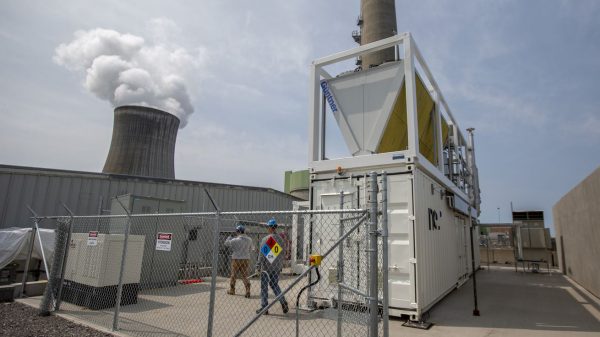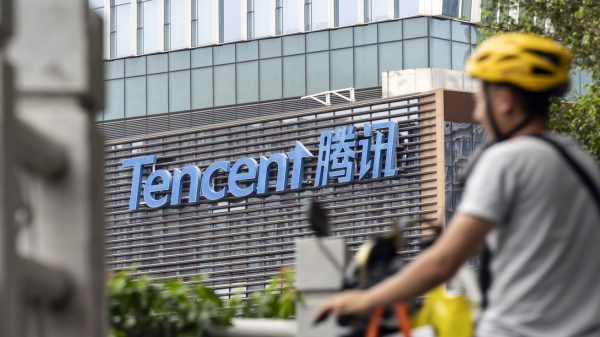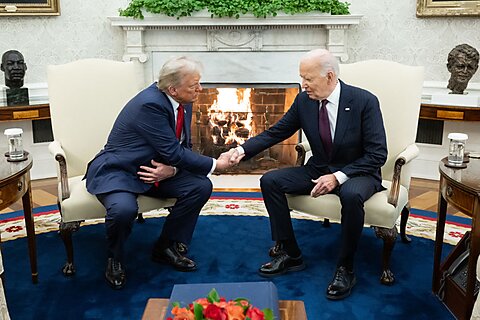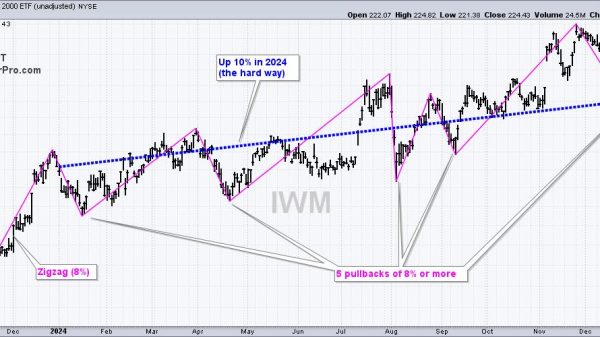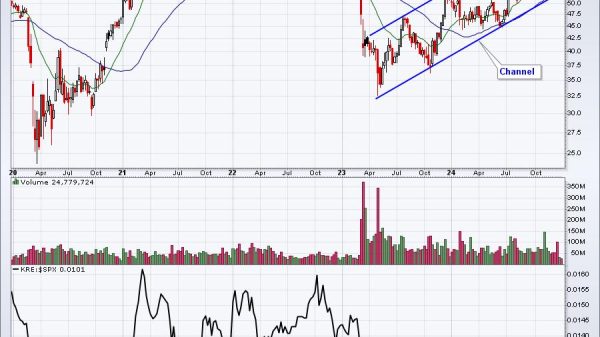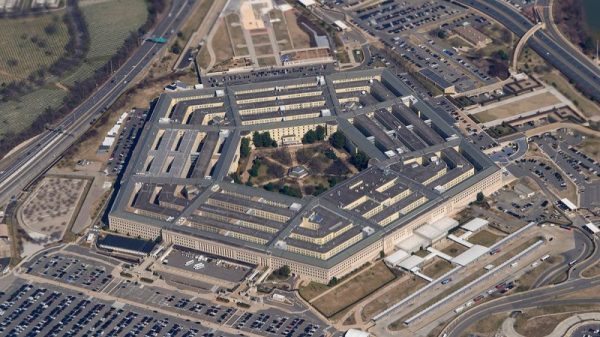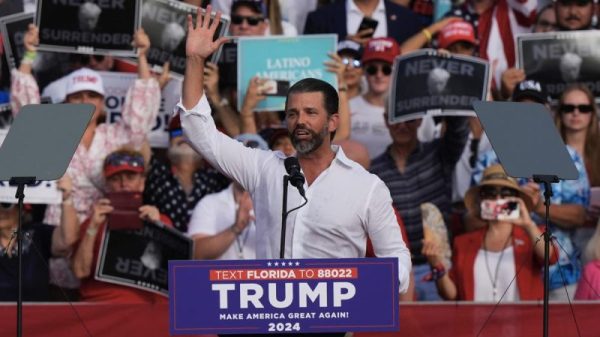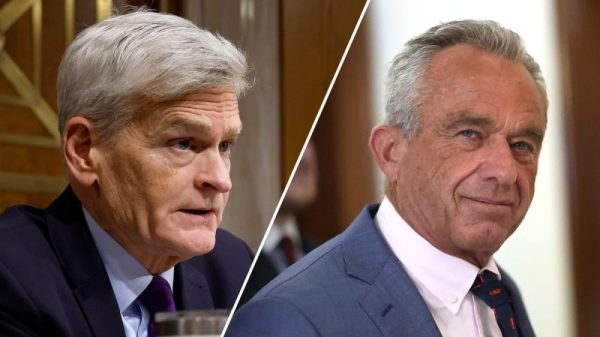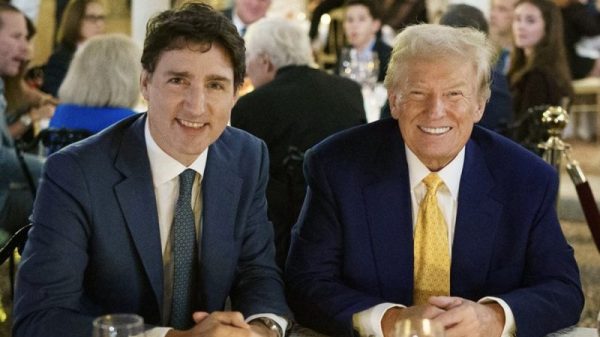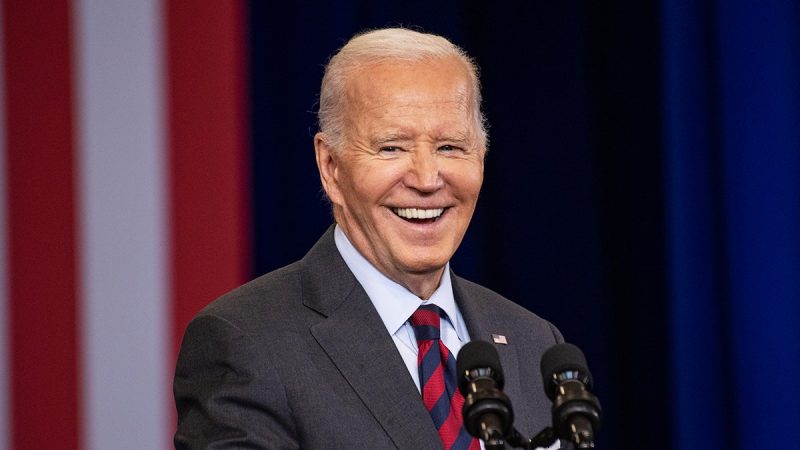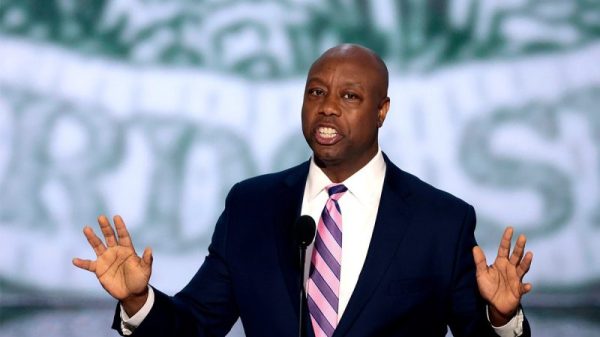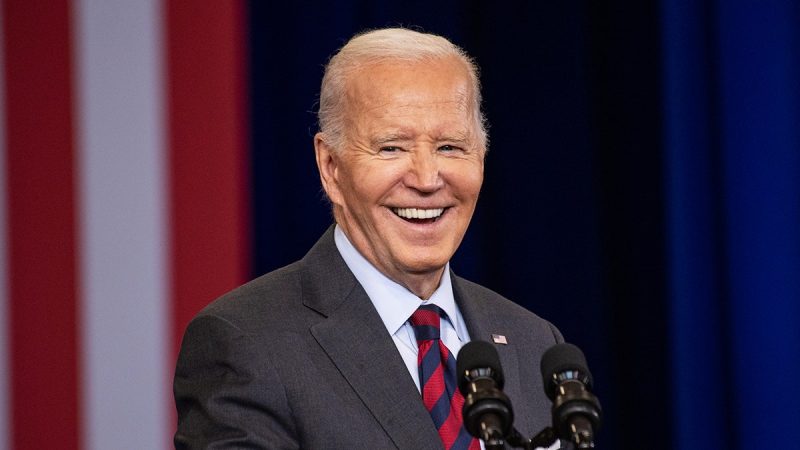
The Treasury Department finalized a crackdown that will prevent the U.S. from investing in the development of military technologies in China this week.
Hawks say the rule is ‘long overdue’ and not broad enough, while some are skeptical of taking U.S. investment power out of China.
The rule prohibits U.S. financing of some China-based ventures and requires Americans to notify the government of their involvement in others.
It restricts and monitors American investments in artificial intelligence, computer chips and quantum computing, all of which have a dual use in the defense and commercial sectors.
The rule seeks to limit the access ‘countries of concern’ like China, including Hong Kong and Macao, have to U.S. dollars to fund the development of high-level technologies like next-generation missile systems and fighter jets they could then utilize for their own military. It’s set to take effect Jan. 2.
‘Artificial intelligence, semiconductors and quantum technologies are fundamental to the development of the next-generation of military, surveillance, intelligence and certain cybersecurity applications like cutting-edge code-breaking computer systems or next-generation fighter jets,’ said Paul Rosen, assistant secretary of the Treasury.
‘This final rule takes targeted and concrete measures to ensure that U.S. investment is not exploited to advance the development of key technologies by those who may use them to threaten our national security.’
Existing U.S. regulations restrict the export of such products to China and other ‘countries of concern,’ and the new regulation cracks down on U.S. dollars pouring into such countries.
The rule, finalized after a public comment period, builds on President Biden’s 2023 executive order. In one category, it will allow the Treasury to investigate and ban transactions that pose ‘a particularly acute national security threat because of [their] potential to significantly advance the military, intelligence, surveillance, or cyber-enabled capabilities of a country of concern.’
It would also create a category of ‘notifiable transactions’ that the government would monitor, those that ‘may contribute to the threat to the national security of the United States identified in the Order.’
Blocking China’s ambitions for tech supremacy is one of few bipartisan priorities in Washington. But not everyone is on board with the new rule.
‘The most well-known proponent of restricting American investment in China is, of course, Xi Jinping,’ said Rep. Patrick McHenry, R-N.C., chair of the House Financial Services Committee.
‘I remain skeptical of a sectoral approach to regulating outbound investment. U.S. outbound investment to acquire Chinese companies enjoys overwhelming bipartisan support, as proven most recently by congressional action to wrest control of TikTok away from ByteDance.’
The chairman, who is retiring, added, ‘To have a strong, immediate and global impact on the CCP’s ability to wage war, policymakers in Congress and the administration must embrace our time-tested sanctions regime. I will continue to oppose efforts that unwittingly advance Chairman Xi’s crackdown on Western influence in China, and I look forward to examining this rulemaking in more detail.’
But others argue the rule is not nearly strong enough. It allows Americans to invest in publicly traded Chinese companies or participate in venture capital or private equity funds with stakes worth up to $2 million.
‘I think that this was a step forward, but, at the same time, it was a missed opportunity to signal deterrence towards China that we will not continue to fund their economy when they’re going to use their economic and military strength to go after Taiwan, to go after the Philippines, to go after Japan, to go after all of our friends and even military allies,’ Michael Lucci, founder of global security firm State Armor, told Fox News Digital.
The rule ‘should be broader than just these three categories’ of AI, quantum computing and semiconductors, said Lucci.
He criticized McHenry’s stance on the rule and said it rang similar to Chinese President Xi Jinping’s calls for American investment in China.
‘Chairman McHenry’s limp-wristed approach to China’s economic warfare upon America is pathetic. He remains in thrall to the long-discredited idea that we will somehow turn China into a liberal democracy if we keep dumping our money into their economy and propping up their hard-core Marxist regime,’ he said.
‘Now, China is once again courting investment because Xi Jinping desperately needs U.S. capital to bail out China’s stagnating economy. America needs to stop playing this game and instead broadly divest from the CCP.’
But a House Republican aide familiar with outbound investments argued the U.S. should want Americans at the forefront of technology development in other countries.
‘You want Americans controlling a company. You want Americans on the board. You want Americans having insights into the technologies that are being developed. And these are the very same arguments behind wanting American investors to own shares and to acquire control over a company like Tiktok, which is also a Chinese technology company,’ the aide said.
‘China is the world’s largest exporter of capital. It certainly does not need dollars, and if we are concerned about these technologies being developed, the proper response is to kill any company that poses a threat to America’s national security, and the way you do that is either through sanctions or through export controls.’
U.S. investment in China has been on the decline for years amid a cooling of relations between the two world powers. U.S. venture capital in China reached a 10-year low of $1.3 billion in 2022, down from $14.4 billion in 2018, according to the Rhodium Group.
Others criticized the Biden administration for waiting until the week before the election to finalize such a rule.
Rep. John Moolenaar, R-Mich., the China select committee chair, called the new rule a ‘long overdue step.’
‘More must be done to ensure American money no longer fuels the Chinese Communist Party’s military build-up, its technological ambitions or its ongoing genocide,’ he said in a statement, adding Congress should ‘build on these rules and address a broader set of technologies and transactions that threaten our national security.’
‘The Biden-Harris administration has finally decided, just a week before the election, that it’s time to act tough on China,’ said Rep. Andy Barr, R-Ky.
Barr and Rep. French Hill, R-Ark., are two top contenders for the top Republican spot on the Financial Services Committee next Congress. Both emphasized that Congress needed to take further action to restrict U.S. investment in Chinese technologies.
‘House Republicans continue to work to construct the most effective legislative approach that properly addresses the concerns many have regarding U.S. investment in Chinese-controlled dual-use technologies while also ensuring we don’t harm our economy,’ Hill said in response to the new rule.


